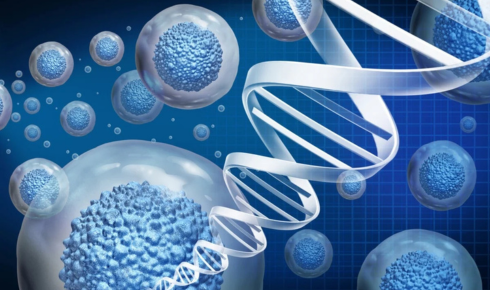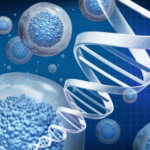Advanced laboratory testing plays a crucial role in enhancing diagnostic accuracy, leading to better patient outcomes and more effective treatments. By utilizing state-of-the-art technologies and methodologies, laboratories can provide precise and reliable results that are essential for accurate diagnosis and disease management.
The Importance of Advanced Laboratory Testing
Improved Diagnostic Accuracy
Advanced laboratory testing technologies, such as molecular diagnostics and genomics, enable the detection of diseases at an early stage, often before symptoms appear. This early detection allows for timely intervention and more effective treatment.
- Molecular Diagnostics: Techniques like PCR (Polymerase Chain Reaction) and next-generation sequencing (NGS) provide detailed insights into the genetic makeup of pathogens and human cells, facilitating the identification of genetic mutations and infectious agents with high precision.
- Genomic Testing: Genomic testing identifies genetic predispositions to diseases, allowing for personalized medicine approaches that tailor treatments to individual genetic profiles.
Comprehensive Test Menu
A comprehensive test menu covers a wide range of medical conditions, ensuring that healthcare providers have access to the necessary tools for accurate diagnosis.
- Infectious Disease Testing: Advanced tests for detecting bacteria, viruses, and other pathogens help in the precise identification of infectious diseases.
- Cancer Diagnostics: Specialized tests for various types of cancer enable early detection, accurate staging, and monitoring of treatment efficacy.
Key Technologies in Advanced Laboratory Testing
Automation and Robotics
Automation and robotics enhance the efficiency and accuracy of laboratory processes, reducing the risk of human error and increasing throughput.
- Automated Sample Processing: Automated systems handle large volumes of samples quickly and accurately, ensuring consistent results.
- Robotic Analyzers: Robotic analyzers perform complex tests with precision, reducing the need for manual intervention and increasing the reliability of results.
Artificial Intelligence (AI) and Machine Learning
AI and machine learning algorithms analyze large datasets to identify patterns and correlations that may not be evident to human analysts.
- Predictive Analytics: AI models predict disease outcomes and treatment responses based on historical data, aiding in clinical decision-making.
- Image Analysis: Machine learning algorithms analyze medical images, such as X-rays and MRIs, to detect abnormalities with high accuracy.
Point-of-Care Testing (POCT)
POCT provides rapid diagnostic results at the patient’s bedside, facilitating immediate clinical decisions and improving patient care.
- Portable Analyzers: Portable diagnostic devices allow for on-the-spot testing, delivering quick results without the need for laboratory processing.
- Biosensors: Advanced biosensors detect biomarkers in body fluids, providing instant results for conditions such as diabetes and cardiac events.
Benefits of Advanced Laboratory Testing
Timely and Accurate Diagnoses
Advanced laboratory testing enables timely and accurate diagnoses, reducing the time to treatment and improving patient outcomes.
- Early Detection: Detecting diseases at an early stage allows for prompt intervention and better management of conditions.
- Accurate Results: High-precision tests reduce the likelihood of false positives and false negatives, ensuring that patients receive the correct diagnosis and treatment.
Personalized Medicine
Advanced laboratory testing supports personalized medicine, where treatments are tailored to the individual characteristics of each patient.
- Targeted Therapies: Identifying specific genetic mutations and biomarkers allows for the development of targeted therapies that are more effective and have fewer side effects.
- Customized Treatment Plans: Personalized treatment plans based on genetic and molecular data improve the efficacy of interventions and patient outcomes.
Cost-Effective Care
Investing in advanced laboratory testing can lead to cost savings in the long run by reducing the need for extensive diagnostic procedures and preventing disease complications.
- Efficient Resource Use: Accurate and timely diagnoses reduce unnecessary treatments and hospital stays, optimizing the use of healthcare resources.
- Preventive Health: Early detection and intervention prevent the progression of diseases, reducing the long-term costs associated with chronic conditions.
Challenges and Solutions
Data Management
Handling the vast amounts of data generated by advanced laboratory tests can be challenging.
- Data Integration: Implementing robust data integration systems ensures that test results are seamlessly integrated into electronic health records (EHRs) for comprehensive patient care.
- Data Security: Ensuring the security and privacy of patient data is critical, requiring the implementation of stringent data protection measures.
Training and Expertise
Advanced laboratory testing requires specialized training and expertise to ensure accurate and reliable results.
- Continuous Education: Ongoing training programs for laboratory professionals ensure they are up-to-date with the latest technologies and methodologies.
- Collaboration with Experts: Collaborating with experts in various fields enhances the accuracy and reliability of test results.
Cost and Accessibility
The cost of advanced laboratory testing can be a barrier for some healthcare providers and patients.
- Insurance Coverage: Expanding insurance coverage for advanced diagnostic tests can improve accessibility for patients.
- Cost-Effective Solutions: Developing cost-effective testing solutions and leveraging economies of scale can reduce the overall cost of advanced laboratory testing.
Future Directions
Integration of AI and Machine Learning
The integration of AI and machine learning into laboratory testing will continue to evolve, providing even more accurate and comprehensive diagnostic solutions.
- Predictive Diagnostics: AI models will become increasingly sophisticated, providing predictive diagnostics that anticipate disease risk and progression.
- Automated Laboratories: Fully automated laboratories will enhance efficiency and accuracy, reducing turnaround times for diagnostic results.
Expansion of Point-of-Care Testing
POCT will expand, providing rapid diagnostic solutions in a wider range of settings, including remote and underserved areas.
- Mobile Health Units: Mobile health units equipped with POCT devices will bring advanced diagnostic capabilities to remote and underserved populations.
- Wearable Devices: The development of wearable diagnostic devices will enable continuous monitoring and early detection of health issues.
Personalized Healthcare
Personalized healthcare will become more prevalent, with advanced laboratory testing playing a crucial role in tailoring treatments to individual patients.
- Genomic Medicine: Advances in genomic medicine will enable more precise and effective treatments based on an individual’s genetic profile.
- Integrative Health Approaches: Integrating advanced laboratory testing with other healthcare approaches will provide a holistic view of patient health and improve treatment outcomes.
Advanced laboratory testing is revolutionizing diagnostic accuracy, enabling early detection, personalized medicine, and cost-effective care. With the integration of cutting-edge technologies such as automation, AI, and POCT, laboratories can provide timely and precise results that improve patient outcomes. Despite challenges related to data management, training, and costs, ongoing advancements and innovative solutions will continue to enhance the capabilities of laboratory testing. As the field evolves, advanced laboratory testing will play an increasingly vital role in modern healthcare, driving improvements in diagnosis, treatment, and overall patient care.










